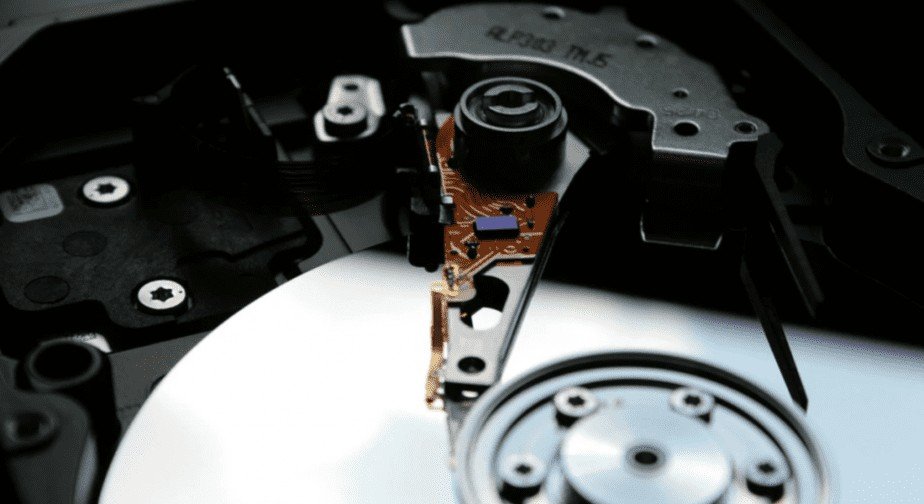The hard drive is the most popular storage device today. Its main advantages over competitors are large capacity and low price. Even though fast SSDs are on the rise, they are still too expensive for high volumes. Therefore, it is too early to write off traditional hard drives. Here is what you should pay attention to when choosing them.
Does the manufacturer matter?
Previously, information was not so accessible, and gadget manufacturing technologies could vary greatly from company to company. In the modern world, brands compete closely with each other and produce products that are similar in parameters. Therefore, in our opinion, it is not so important which manufacturer you choose: Seagate, WD, or Toshiba.
Seagate remains one of the most popular HDD manufacturers. Almost all of their current models have an average customer rating of 4.5 points.
Form factor
There are a few options here – 2.5 and 3.5 inches. Laptop owners simply have no choice: as a rule, only 2.5-inch hard drives are suitable for laptops. In theory, you can install any on a PC, but again, most often these hard drives are 3.5 inches. If only because, in terms of a unit of memory, they usually cost less than 2.5-inch ones.
Interface
Almost all modern HDDs have a SATA interface. The only difference is in the release version. There are only three of them, 1.5, 3, and 6 Gb/s. Versions are backward compatible. That is, a SATA 6 Gb/s hard drive can work in devices for all other releases, but not vice versa. As you might guess, the throughput of the disk depends on the release. If your motherboard supports SATA 6 Gb/s, you can ignore all the others. And to find them in our time, frankly, is quite problematic.
Capacity
Perhaps it is from this parameter that you should build on. 500 GB and 1 TB drives are suitable mainly for office computers. If you are an active user who regularly downloads movies and installs games, we would recommend paying attention to models with a capacity of 2 TB or more. Why not 1? It’s simple: some modern AAA games take up 200-250 GB. 4 games, and the hard drive is full.
In the current realities, the trend of increasing hard drive space will not disappear and will only accelerate in the coming years. Graphics are getting better. Resolutions are getting higher. Game worlds are getting bigger. Hence it turns out that a terabyte is eaten up by just a couple of projects.
When it comes to data storage (for example, backups or archives of professional photos and videos), take an HDD of at least 4 TB. Options from 6 TB are still expensive (in terms of 1 TB of memory).
Spindle speed
This is the main parameter that affects the speed of the hard drive to the maximum extent. Today, there are two main types of HDD: with a spindle speed of 5400 and 7200 rpm. There are models with up to 15,000 rpm, but they are very expensive and rare.
We recommend 7200 rpm drives because they are on average 1.5 times faster than 5400 rpm. However, 5400 rpm is better for a laptop because it generates less heat and less vibration. In addition, low-speed HDDs are considered more reliable due to less wear and tear on components.
Specialization
It seems that all hard drives are the same. That is, they are suitable for writing any data. But there are also specialized solutions – in particular, for use in video surveillance systems, servers, RAID arrays. How are they different from “regular” hard drives? Preparedness for specific working conditions. For example, HDDs for video surveillance are designed for round-the-clock operation with constant load. As a rule, they are more reliable and last longer.
Cache size
Many users think that the speed of the hard drive depends solely on the size of the 1st level cache, but this is not so. Speed indicators are the cumulative result of many parameters. The cache is just a small partition with a high data transfer rate. Yes, it really speeds up the HDD, but only slightly and not in all operations.
Therefore, you should not focus on the amount of cache in the first place. In general, the more the better, but sometimes the size of the cache depends on the size of the hard drive. And also, an important role is played by software optimization, information about which is almost impossible to find. Often, HDDs with a large buffer are server solutions, which, at the same time, can lose to similar models in terms of speed and a priori cost more than them.
What other options?
Those who do not want to put up with the low speed of hard drives compared to SSDs can look at hybrid drives (SSHD), which combine technologies for storing data on a hard drive and NAND memory. Such solutions are more expensive than classic HDDs but significantly outperform them in terms of speed.
In some cases, not an internal but an external HDD may be useful. This can be used as backup storage: connect if necessary and store at least in another room.
